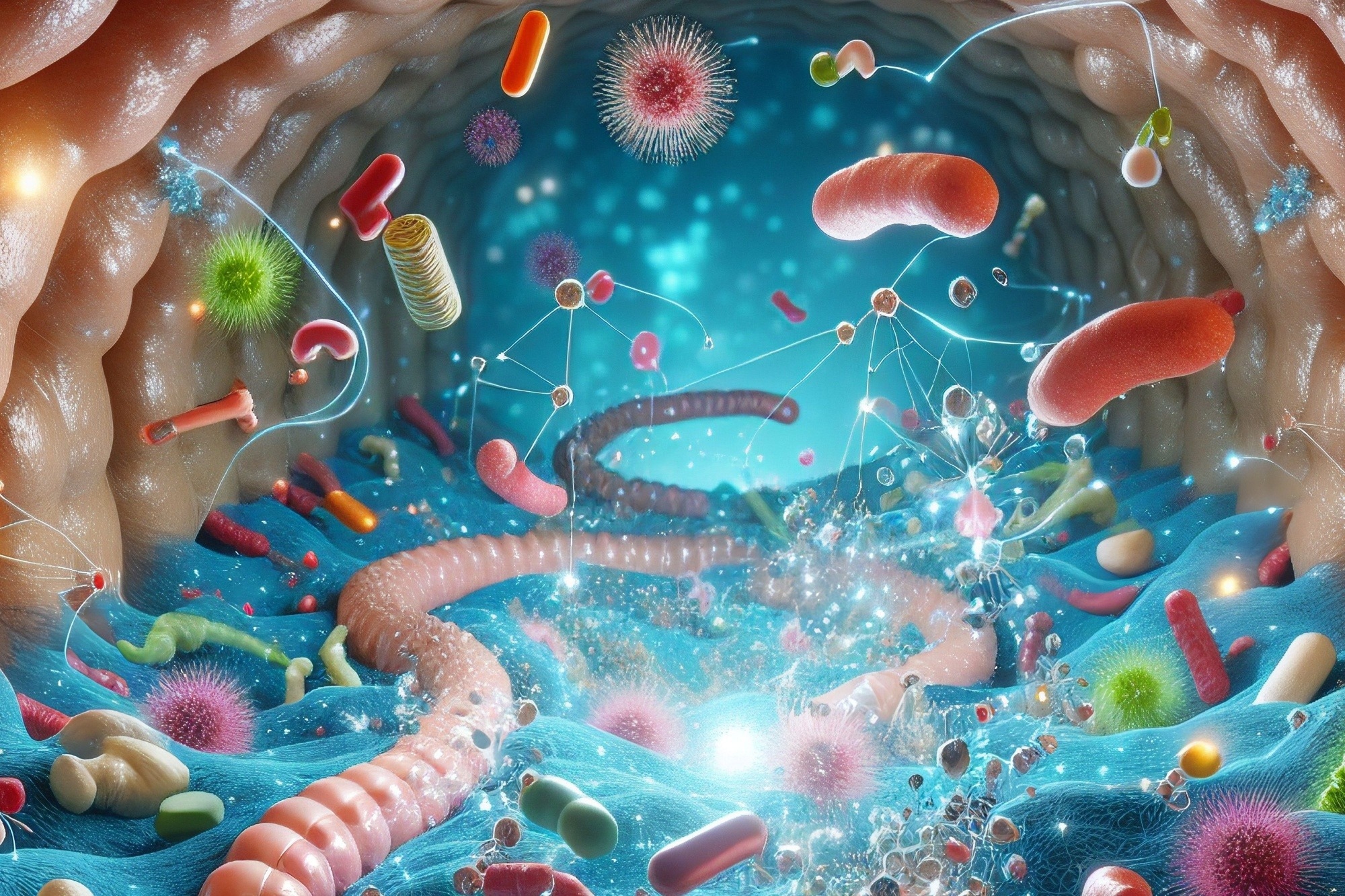Probiotics, especially when combined with lactoferrin, can benefit acne patients by reducing inflammation, oxidative stress, and IGF-1 levels, while also supporting hair growth and improving skin health through immune regulation and gut microbiome modification.
Study: Nutritional and Microbial Strategies for Treating Acne, Alopecia, and Atopic Dermatitis. Image Credit: Shutterstock AI / Shutterstock.com
A recent Nutrients study reviews the mechanisms underlying the relationship between gut microbiome (GM), nutritional factors, and certain skin diseases. The researchers report that consuming diets rich in fiber, antioxidants, and phytonutrients, combined with the use of probiotics, synbiotics, and postbiotics, improves overall skin health.
How does the gut microbiome affect skin health?
The GM assists in protecting the host against pathogen invasion by competitively adhering to epithelial cells. A diverse GM also produces short-chain fatty acids (SCFAs), which contribute to wound healing and follicle stem cell differentiation.
Acne is characterized by follicular hyperkeratinization, excessive sebum production, and inflammation. Individuals with acne often exhibit reduced GM diversity. In fact, acne vulgaris has been associated with the Western diet, which often consists of high levels of saturated fat and elevated glycemic indices. Researchers have hypothesized that dysregulated nutrient signaling could lead to uncontrolled activation of sterol regulatory element-binding protein 1 (SREBP-1) and a greater synthesis of triglycerides and fatty acids in sebum.
Alopecia is characterized by the reduction or complete absence of hair in certain regions. Both alopecia and gut dysbiosis share common genes that induce a type 1 helper (Th1) response, as well as the production of interferon γ (IFN-γ). IFN-γ signals through the JAK/signal transducer and inductor of transcription (STAT) pathway, with the activation of this pathway potentially implicated in hair loss.
Atopic dermatitis (AD) leads to intense itching and recurring eczema-like lesions on the skin. In AD patients, intestinal barrier disruption and gut dysbiosis have been observed, along with a significant reduction in microbial SCFAs.
The leaky gut in AD patients facilitates the entry of poorly digested foods, toxins, and gut microorganisms into the bloodstream. Skin inflammation can subsequently arise through the induction of Th2, thereby leading to additional tissue damage.
The role of diet in acne, alopecia, and AD
The consumption of whole milk has been associated with cases of moderate to severe acne. Moreover, foods with high glycemic indices, as well as those that are rich in fats, could impact the GM and increase intestinal permeability, thereby aggravating acne symptoms.
Vegetarian diets may reduce the risk of alopecia; however, these diets can be low in essential nutrients like zinc, iron, niacin, and biotin, all of which can affect hair structure and lead to hair loss. Nevertheless, plant-based diets have delivered better results for alopecia patients as compared to the Western diet.
Plant-based diets are considered a therapeutic alternative for the management of AD. These diets, which are often high in fiber and low in fats, can increase the diversity of beneficial microorganisms in the GM, thereby leading to optimal skin and gut health. The high flavonoid content of fruits and vegetables may also positively impact AD.
The Mediterranean diet is predominantly plant-based and rich in polyphenols and antioxidants. Adherence to this diet has been associated with overall well-being, fewer cardiovascular events, and lower mental health issues.
The Mediterranean diet has been shown to alleviate symptoms of acne, with its lycopene-rich ingredients explored for their potential as natural therapeutics for hair growth regimens. Nevertheless, contradictory results have been reported on the relationship between a Mediterranean diet and AD.
Microbial therapeutics for skin diseases
The consumption of probiotics, especially when paired with lactoferrin, can provide beneficial effects for acne patients. Probiotics, such as Lacticaseibacillus rhamnosus strain SP-1, can also lower inflammatory biomarkers, oxidative stress, and insulin-like growth factor 1 (IGF-1) levels. Despite these observations, additional research is needed to identify the optimal delivery methods and long-term health effects of these microorganisms.
Previously, a mouse model study demonstrated that supplementation with Limosilactobacillus reuteri increased dermal thickness, folliculogenesis, and sebocyte generation. Other studies have reported increased cutaneous blood circulation and enhanced corneal hydration following the administration of probiotics. Overall, these studies indicate that probiotic supplementation can support hair growth through modifying the GM.
In AD, immune dysregulation, skin barrier dysfunction induced by interleukin 17 (IL-17) and IL-22, and alterations in the skin microbiota composition have been observed. Probiotic supplementation can reduce pro-inflammatory cytokines and increase the release of anti-inflammatory cytokines like IL-10 and transforming growth factor β (TGF-β), while also reducing the conversion of T-cells to Th2 cells and the differentiation of mature dendritic cells.
Journal reference:
- Borrego-Ruiz, A., & Borrego, J. J. (2024) Nutritional and Microbial Strategies for Treating Acne, Alopecia, and Atopic Dermatitis. Nutrients 16(20), 3559. doi:10.3390/nu16203559
Source link : News-Medica

